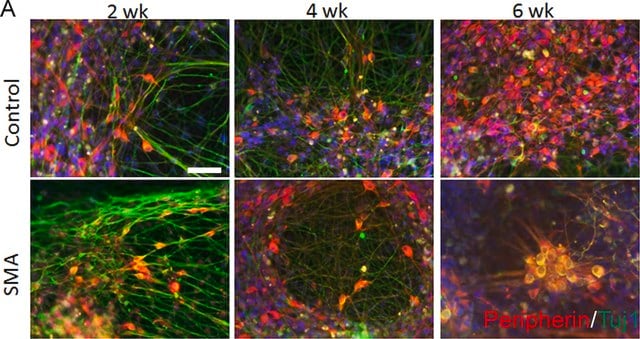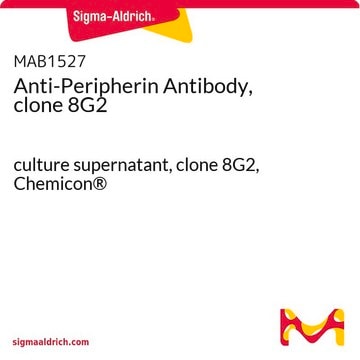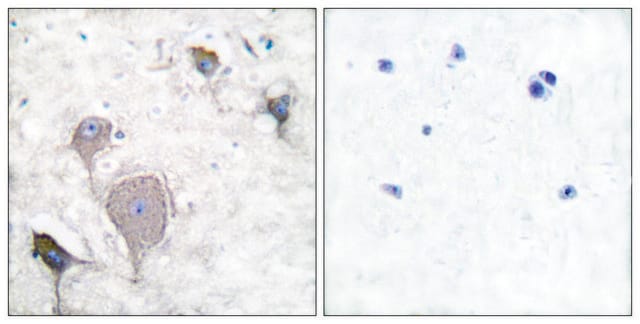P5117
Anti-Peripherin antibody, Mouse monoclonal
clone 8G2, purified from hybridoma cell culture
Synonym(s):
Anti-NEF4, Anti-PRPH1
About This Item
Recommended Products
biological source
mouse
Quality Level
conjugate
unconjugated
antibody form
purified from hybridoma cell culture
antibody product type
primary antibodies
clone
8G2, monoclonal
form
buffered aqueous solution
species reactivity
rat, bovine, pig, mouse, rabbit, feline, human
technique(s)
immunohistochemistry: suitable
indirect ELISA: suitable
microarray: suitable
western blot: 0.5-1.0 μg/mL using total cell extract from rat PC12 cells
isotype
IgG1
UniProt accession no.
shipped in
dry ice
storage temp.
−20°C
target post-translational modification
unmodified
Gene Information
human ... PRPH(5630)
mouse ... Prph(19132)
rat ... Prph(24688)
Related Categories
General description
Immunogen
Application
- immunohistochemistry
- western blotting
- enzyme linked immunosorbent assay (ELISA)
- immunofluorescence staining
Biochem/physiol Actions
Physical form
Disclaimer
Not finding the right product?
Try our Product Selector Tool.
recommended
Storage Class Code
10 - Combustible liquids
WGK
WGK 3
Flash Point(F)
Not applicable
Flash Point(C)
Not applicable
Certificates of Analysis (COA)
Search for Certificates of Analysis (COA) by entering the products Lot/Batch Number. Lot and Batch Numbers can be found on a product’s label following the words ‘Lot’ or ‘Batch’.
Already Own This Product?
Find documentation for the products that you have recently purchased in the Document Library.
Our team of scientists has experience in all areas of research including Life Science, Material Science, Chemical Synthesis, Chromatography, Analytical and many others.
Contact Technical Service








